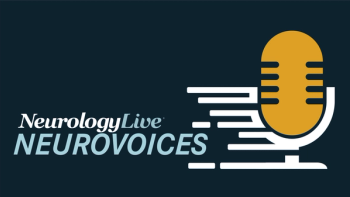
Survey Suggests Need for Migraine Treatment Standardization Among Women’s Healthcare Providers
Respondents reported varying levels of comfort regarding the management of migraine during pregnancy, with only half of women’s healthcare providers indicating they conducted counseling on migraine during pregnancy.
The results of a survey of women’s healthcare providers suggest that there is a need for the development of a standardized guideline for migraine management during pregnancy due to reports of varying levels of comfort with recommending or prescribing migraine treatments.1
All told, the survey was completed by 92 of 402 women’s healthcare providers in Connecticut, of which 66% (n = 61) were physicians and 91% (n = 84) specialized in general obstetrics and gynecology. Of those respondents, 63% reported that they felt comfortable counseling pregnant patients on the risk-benefit profiles of acute treatments for migraine during their pregnancy, while only 33% reported that they counseled patients on migraine treatment once they became pregnant.
Notably, 64% (n = 59) of respondents replied that they felt more comfortable continuing a current preventive migraine therapy than recommending or prescribing a preventive during pregnancy. Additionally, 53% (n = 49) of respondents said they would seek neurologist or maternal-fetal medicine specialist approval when prescribing medications during pregnancy.
The findings were presented by lead author Brian Grosberg, MD, director, Hartford Headache Center, and professor of neurology, University of Connecticut School of Medicine, at the
“We know from previous research that migraine is often managed in the primary care setting, however, many women consider their women’s healthcare providers to be their primary care providers,” Grosberg explained. “Very little is really known about migraine treatment within this setting. We wanted to really understand what is known by women’s healthcare providers about migraine knowledge and treatment.”
LISTEN NOW:
He noted that the demand for headache specialists due to the size of the migraine patient population is likely unmatchable. “The ratio, if you will, of a certified headache specialist to the population is never going to be balanced. What that does is create an opportunity—not a challenge—to try and understand what is known by primary care providers, who are the gateway [to headache care],” Grosberg said.
The largest percentage of respondents (69.2%) were comfortable recommending or prescribing magnesium for the prevention of migraine during pregnancy, followed by selective serotonin uptake inhibitors (39.6%), melatonin (33.7%), and beta-blockers (30.3%). On the other hand, the largest majority of respondents were uncomfortable prescribing onabotulinumtoxinA (89.9%) and tricyclic antidepressants (67.4%) (FIGURE).
As for acute treatments, the highest proportion of respondents felt comfortable prescribing acetaminophen (100%), nonpharmacological therapy (88.8%), butalbital-containing analgesics (73.6%), and antiemetics/dopamine antagonists (69.2%). The acute therapies that respondents were least comfortable prescribing were neuromodulation (80%), nerve blocks with lidocaine (78.9%), and triptans (65.9%).
Grosberg et al. noted that the lack of comfort with both continuing and prescribing triptans for patients who are pregnant “indicates that there is a need for additional education on the safety data of triptans.” Additionally, they wrote that the discomfort of women’s healthcare providers with nerve blocks and neuromodulation is “in contrast to headache clinicians who previously reported feeling very comfortable performing nerve blocks as a treatment of migraine during pregnancy, given the low risk of systemic effects.”
For more coverage of AHS 2021,
REFERENCES
1. Bakaysa S, Veromesi MA, Verhaak AMS, Johnson A, Grosberg BM. Migraine Treatment in Pregnancy: A Knowledge and Needs Assessment of Women’s Healthcare Providers. Presented at 2021 AHS Annual Scientific Meeting; June 3-6. P105
2. Verhaak AMS, Williamson A, Johnson A, et al. Migraine diagnosis and treatment: A knowledge and needs assessment of women’s healthcare providers. Headache. 2021;61(1):69-79. doi: 10.1111/head.14027.
Newsletter
Keep your finger on the pulse of neurology—subscribe to NeurologyLive for expert interviews, new data, and breakthrough treatment updates.










